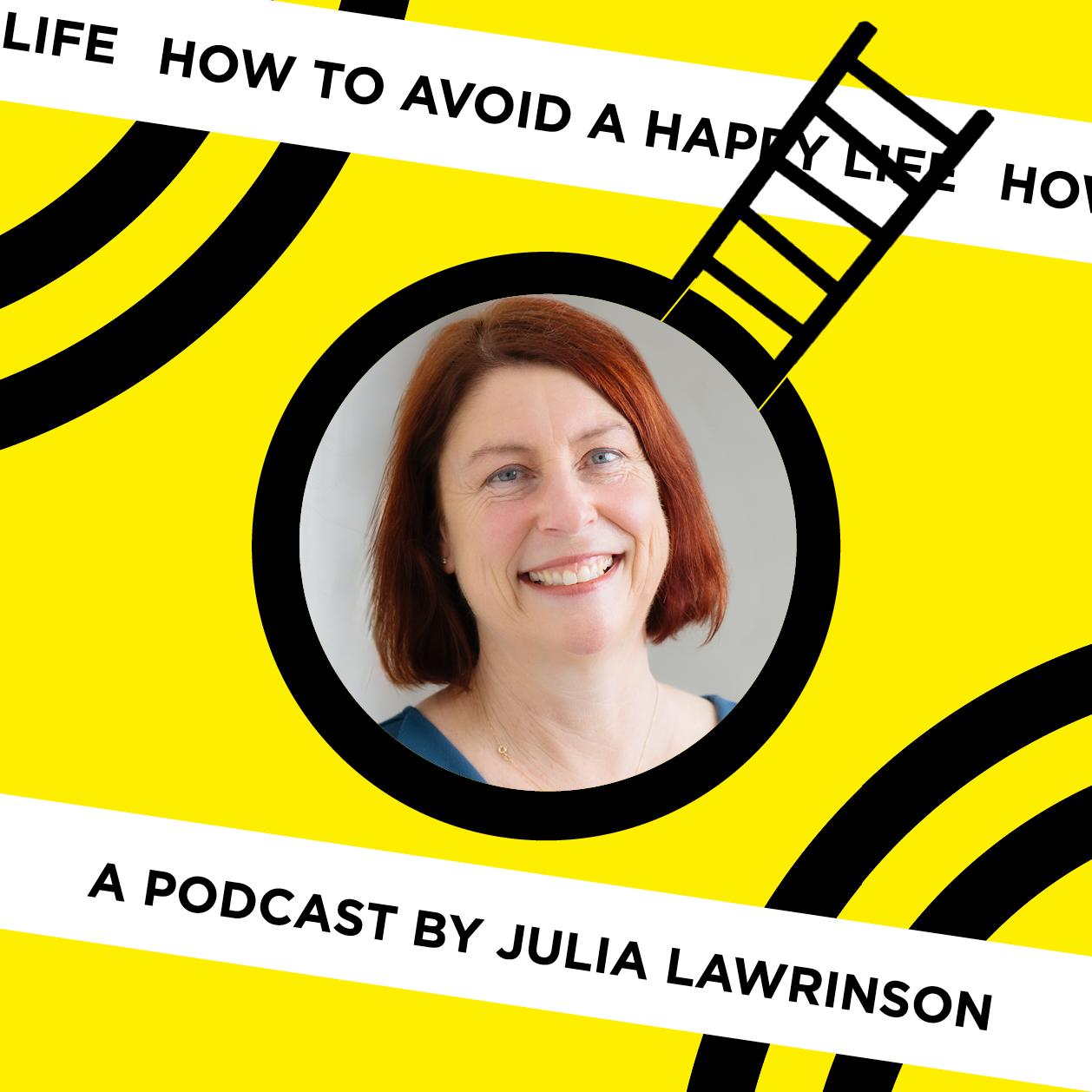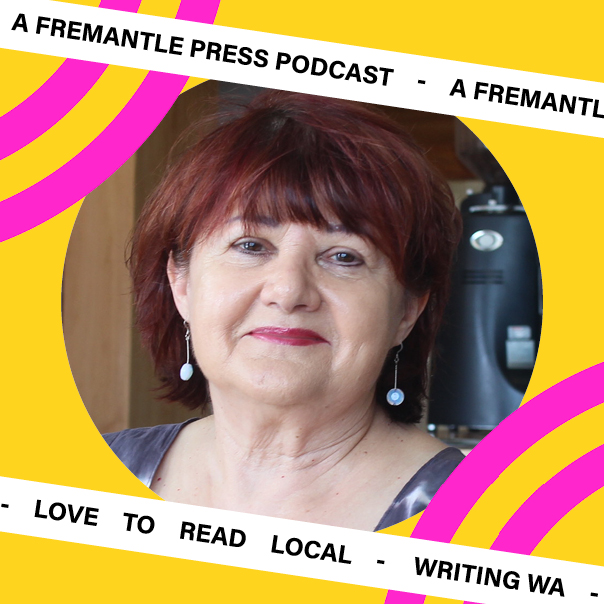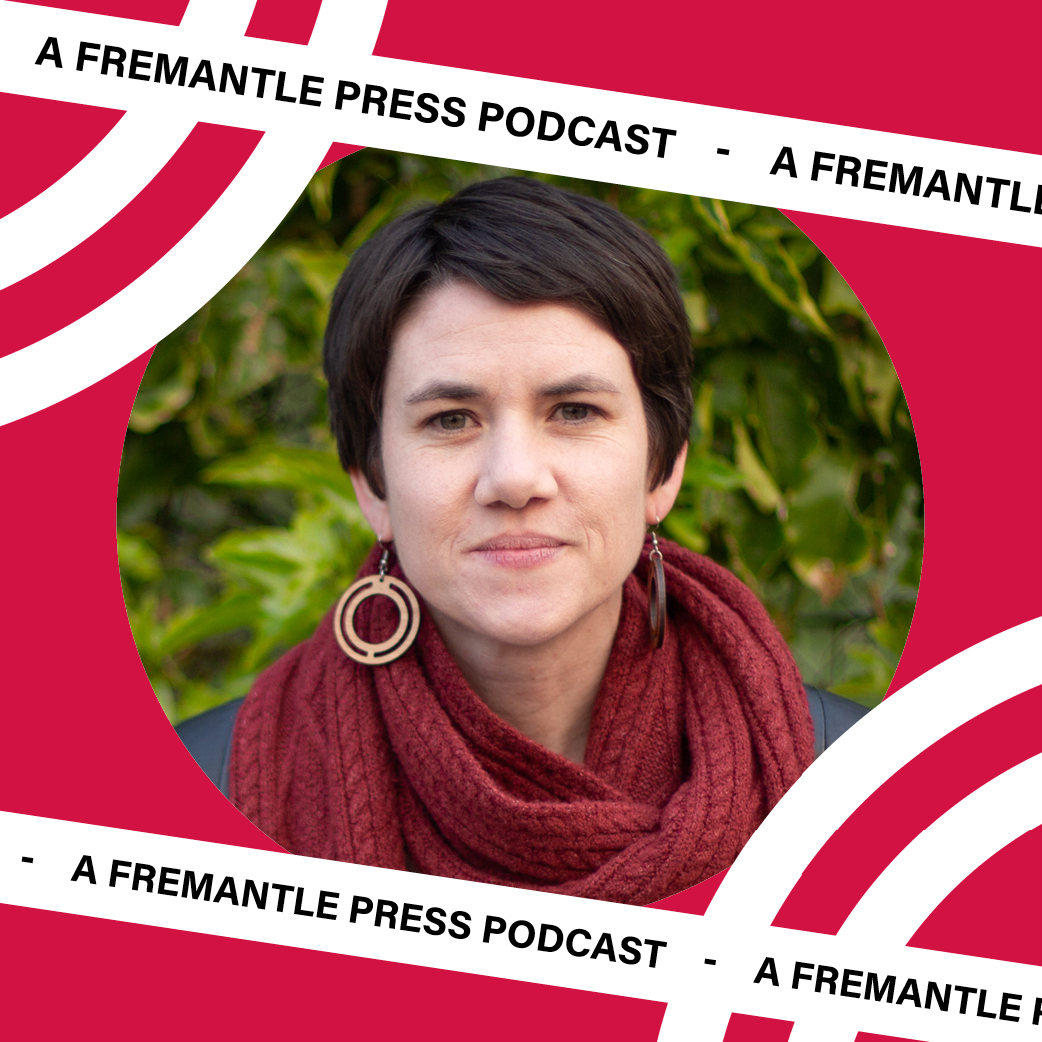Episode Transcript
Speaker 1 00:00:12 Hello and welcome to this special city of Freemantle Hungerford award edition of the Freemantle Press podcast. Today we are recording on in Wag Bja, and I'd like to acknowledge our first storytellers along with the Noar elders past, present, and future. My name is Maria Papa. My novel Skimming Stones won the City of Freeman or Hungerford Award in 2020. I'm delighted to be asked to help introduce you or to the next round of Hungerford writers, those four shortlisted writers waiting expectedly for the announcement of the winner on Thursday, the 20th of October Shortlisting. And the eventual win for me was super affirming. Aside from publication, it's given me the confidence to keep writing and it was the boost I needed to begin my next story. So I'm really looking forward to hearing from all of these people. Today's guest is Marie O'Rourke, whose manuscript is a work of narrative nonfiction called Zuki. Listeners. Please note that Marie's work does depict scenes of emotional abuse. So please exercise discretion if this kind of material is challenging for you. Let's hear from Freeman Press publisher Georgia Richter about why she chose this manuscript for the short list.
Speaker 2 00:01:32 Narrative. Non-fiction or creative non-fiction, as it's also known, can be really challenging to write. And the pact with the reader is the material must be true. So the story is in a way already set down. However, the art of telling that story really lies in the carefulness of selection. In her collection of essays, which is titled Zui Marie has written meditations that are about the intersection of memory and personal life, and its themes include loss and grief and violence and love and different kinds of human connection. And though the content itself can at times be confronting, they're written with such delicacy that they really draw the reader in. And they also make a space for the reader to respond to the material and think about how that might apply to them. And another thing I loved about this is the way that the people in this story are presented with complexity over time. So they're not always the same and things change and can Sugi is a work that is gentle and wise, and it has really stayed with me.
Speaker 1 00:02:49 And now let's hear from the writer herself. Marie spent many years reading, analyzing, and teaching the stories of others before working up the nerve to start shaping her own. Fascinated by the multiplicity and mutability of self, Marie's writing focuses on the contradictions and quirks of memory and identity. Her essays have been published in respected national and international journals, such as Ab Aon Essay, Daily Me Meniscus, New Writing Text, and Westerly Marie holds a PhD from Cur University where she now teaches across the creative writing, English and cultural studies and professional writing and publishing departments. Marie, welcome to the podcast and congratulations.
Speaker 3 00:03:32 Thanks, Maria. I'm happy to be here.
Speaker 1 00:03:34 First up, tell me something about yourself that's not in your official writing bio note.
Speaker 3 00:03:40 Well, I suppose I'd have to say that a career and probably a life highlight for me was having the opportunity to work with the original manuscript of George Elliott's middle March at the British Library back in 2017. I've always played Middle March as one of my favorite books ever since I read it as a 19 year old. And I was thinking around ideas for my manuscript. I knew I needed to write somehow about that story and what it meant to me. Um, I've always been a scribblers and an underliner in my books and decided to base an essay on what I could learn of my old 19 year old self from rereading, um, my original penguin copy. Um, and I found it really fascinating, the earliest self that I had in the scribbles and the way my perspective on the different characters and the plot of middle match had changed. So then to get to see Elliot's own handwriting, smudges corrections, um, t stains and all, it was a real thrill and I felt like I could sense her mind moving just like I saw my own mind moving out in the margin earlier on my pages.
Speaker 1 00:04:38 You have a PhD from Cur University, a strong publication background, and you yourself teach creative writing. With all that experience, are you still excited about being shortlisted for the City of Freeman or Hungerford Award? And if so, why?
Speaker 3 00:04:54 Yes, of course. I'm excited ridiculously so I suspect I sounded like one of those radio show winners who just keep squealing. When I received the call from Georgia and Claire to let me know that I was shortlisted, it's a huge honor to be considered for such a significant prize and just incredibly satisfying to know that my words managed to connect with the judges that Ken SU's voice could be heard and appreciated. I think as a writer, that's what you are always hoping for and working towards the thought of possible publication and connection with many more readers is absolutely thrilling to me. But admittedly a little bit terrifying too, given that my life is the core of the subject matter in the book.
Speaker 1 00:05:33 Your writing is narrative non-fiction, and you say it focuses on the contradictions and quirks of memory. Would you mind describing the manuscript in more detail for our listeners?
Speaker 3 00:05:44 The Japanese out of Zui provides the title for my work and its philosophy really drives the whole collection. So Kenui is also known as golden joinery, and it's a process where, um, they repair broken ceramic with scenes of gold lacker. So they draw attention to the sites of damage rather than a, than trying to camouflage them. So like the Japanese philosophy of Wbi, Sabi Zuki is all about embracing imperfection, celebrating strength and beauty within breakage. And my manuscript works to do the same thing. It's a collection of experimental personal essays. It explores a series of difficult and defining relationships in my life, but through a voice and imagery, which I hope, um, has a fairly delicate touch and alludes to trauma and sadness rather than really leaning into them. It shares the specifics of my life as I remember it, Um, but it works with pretty universal themes around identity, celebration and mourn.
Speaker 3 00:06:40 The power of familial relationships, transgression, forgiveness. It's also a real a lot about the nature of memories generally and how memory works on us as we work on it over time. So HSA in the manuscript stands alone but builds on and talks to the others. It's non-linear, but you do see the speaker grow and develop as she moves from a really fraught father-daughter relationship into relationships with other men, um, evolves aesthetics and taste against and in line with those she's grown up with. She shifts from being a daughter and a sister to becoming a mother herself and develops into a serious reader who interrogates her relationship with what she reads. The writing and the collection also really tries to mimic the way my mind works and show the way that memories and traces of ourself can be held within anything and everything. If we look closely be that a recipe not crawled in the margin of a book, a piece of knitting or sewing, or a song,
Speaker 1 00:07:38 We've asked you to read something from Kisuki for us. Marie, you can start whenever you're ready.
Speaker 3 00:07:45 Thanks, Maria. Asbestos walls, which caved easily to dad's fist heel. So two, the wood veneer furniture, it's slippery gloss, scarred pale chards, breaking through this in a room of peeling wallpaper where two couches and two chairs huddle their course. Brown bber fabric snagging fingernails or rough heels. One arm of mum's chair sag slightly like that of a stroke. Patient heavy pine coffee table sits nearby, bought at a local shopping center to display. It's the handy work of inmates from Fremont Prison. If he is home, my father stretches on this lounge room floor cushion under and arms behind his head. Ankles crossed. We watch TV without conversation nestled on mum's lap. That deadly thump of her heart reverberates through the chain bracelet of my spine. I can't see his face, so I watch those feet carefully know they will rub together as he snails or complains when they go limp and fall.
Speaker 3 00:08:51 Softly, sideways. Gentles will follow with the inhale and exhale of his breath. Our bodies soften, shoulders drop and fingers. Unc curl The carpet beneath him is a swirl of browns and yellows. I sometimes lie on my stomach and trace the patterns that don't go anywhere up close. I realize just how at entangled they are can see the pile and tought of the carpet thread, bear patches where the webbing shows through. Mum still has nightmares that she's back living there with him even now, almost 25 years on. And dad over 10 years dead. We are always children in her dreams. And though the plot changes slightly most often, it centers on a black bottomless pool, which appears in our backyard. We three girls skirt around its rim, fascinated, edging closer and peering in. I dream of that house too, of my life's five homes. It's the one I keep returning to though in ever changing shapes and forms.
Speaker 3 00:09:53 It's always our old house, yet it's not. Still there's something that tells me where I am, even when the markers are skewed and awry. One night I woke in tears, my heart thumping, the details flooded in Amelia Street. Late at night I was awake down, asleep, outside loud, banging and breaking blast. There were no curtains, so I cracked and crawled the carpet rough under my elbows and knees as I tried to remain out of view peering out, I watched a man swagger along the street, crowbar in hand, caving in bonnets and sides of parked cars behind the e glass of our front door. A shadow was looming coming up our driveway. Then the front steps suddenly dad was behind me, threw open the door and confronted him. Despite my protests, there was ling up some angry words, the stranger shift attack and dad was suddenly calm reasoning, talking it through dropping the crowbar, the man turned and wandered away. Dad quietly shut the door, said time for bed, Read that nightmare was well over a year ago. Come to think of it, I haven't dreamed of Amelia Street since.
Speaker 1 00:11:04 I love the piece. Marie, I really enjoyed the way you've described setting in this piece and the way the setting and the characters interact together from the extract. My feeling is that you've taken an ugly situation and transformed it with beautiful words in a kind of gentle distance from the material. Was that deliberate?
Speaker 3 00:11:25 Well, I'm delighted to hear say that because that sense of capturing both beauty and brokenness is what the manuscript is really driven by. I love books that can do that. Um, recently I've read maps about spectacular bodies by Mad Mort. And though that's fiction, I feel it works in a similar vein. So a friend and I have got a standing joke about my inability to ever write about anything that's just plain happy. Even when I start from a point of happiness, I seem to find myself digging below the surface to sort of see what what's lurking underneath. I'm really fascinated by the unconscious and the, the way we get sort of revelations through memory and drones, which I think comes out in that extract. I don't like people who dismiss li life writing as therapy and lots of people do. But my research and writing, I have to admit, has all been focused on finding a better understanding of not just what I think and feel or remember, but why.
Speaker 3 00:12:21 And I'm always trying to find new ways and better ways to capture the sort of contradictions and complexities that I find within the people, the places and the emotions of my life. To do that, I do think you really need to create a distance between yourself and the subject matter, which can be really hard when the subject matter is actually yourself and your own life. And I like to think that my writing is intensely personal but not confessional. I think that might sound a bit contradictory, but I I do believe there's a distinction there and I think it's important to both reveal and withhold at the same time. So one of my favorite, um, essayists and a Monson, he speaks of a writer friend of his as being quote, in a way, transparent, a vulnerability artist. And that's the sort of space that I'm really trying to inhabit. But I think willingness to be vulnerable doesn't have to rely on a kind of blow by blow expose. That sort of tele oil style of life writing has that's given rise to that sort of term. Misery memoir is something I really wanna try and distance my work from. I do consciously work at crafting a voice and image and imagery that's got a delicate touch and I like to try and allude to trauma and sadness rather than dwelling and leaning into them.
Speaker 1 00:13:42 Marie, thank you so much for sharing your thoughts with us today. Is there anything else you'd like to add?
Speaker 3 00:13:48 Um, I suppose I'd just like to put in a quick plug for the personal essay as a form. Uh, it's the motor I've always worked in, but it hasn't really enjoyed the popularity in Australia that it's got in the Northern Hemisphere, but there are a few signs that that's changing. I think when people hear the word essay, it conjures sort of horror high school memories and people expect something really dry and analytical and detached. But the original meaning of the French Word essay is simply about trying and testing. And I love the sense of capacious within that word and within the essay genre, there's no rules about, um, the form that that trial or test can take. And my essays try to sort of slide across and through different modes. So I use poetic imagery, personal narrative and cultural theory and blur and bounce them off one another. I think importantly as well, the essay never makes any demands for a clear narrative arc or neat resolution, which is, in my opinion probably why it's the perfect vehicle for exploring those sort of muddy waters of life and self and memory. I'm sure I'm not the only one who struggles to see where my life is going or sometimes where it's been. Um, I think humans just don't fit into neat, recognizable patterns. And I believe the personal essay form not just allows for that, but really celebrates it.
Speaker 1 00:15:09 Marie, best of luck with your writing and with the award we've been hearing from Marie O'Rourke, who is shortlisted for the 2022 City of Freeman Hungerford Award To discover whether Marie wins the award, we'd love to have you join us at the ceremony, which takes place at Freeman Art Center on Thursday the 20th of October. I will be there as well, the who's who of the West Australian literary community. Tickets are free and available now from the Freemantle Press website or Event Bright. I'm Maria Papas, author of Skimming Stones, and I've been your host for the Freemantle Press Hungerford podcast series. Thank you for listening.


